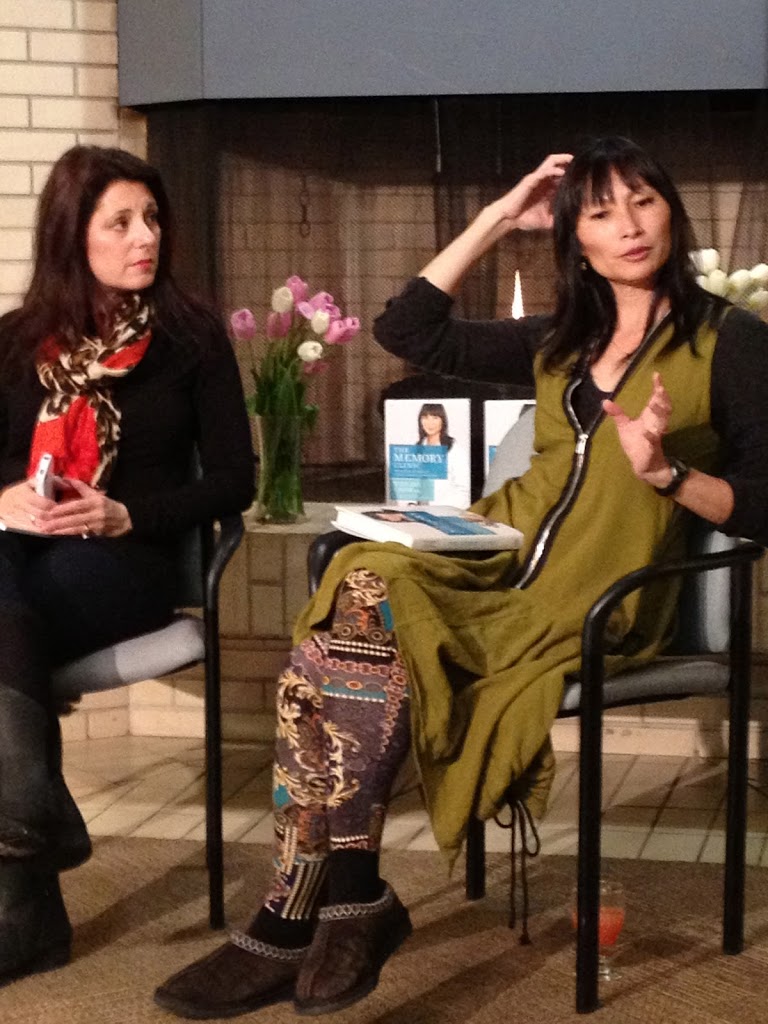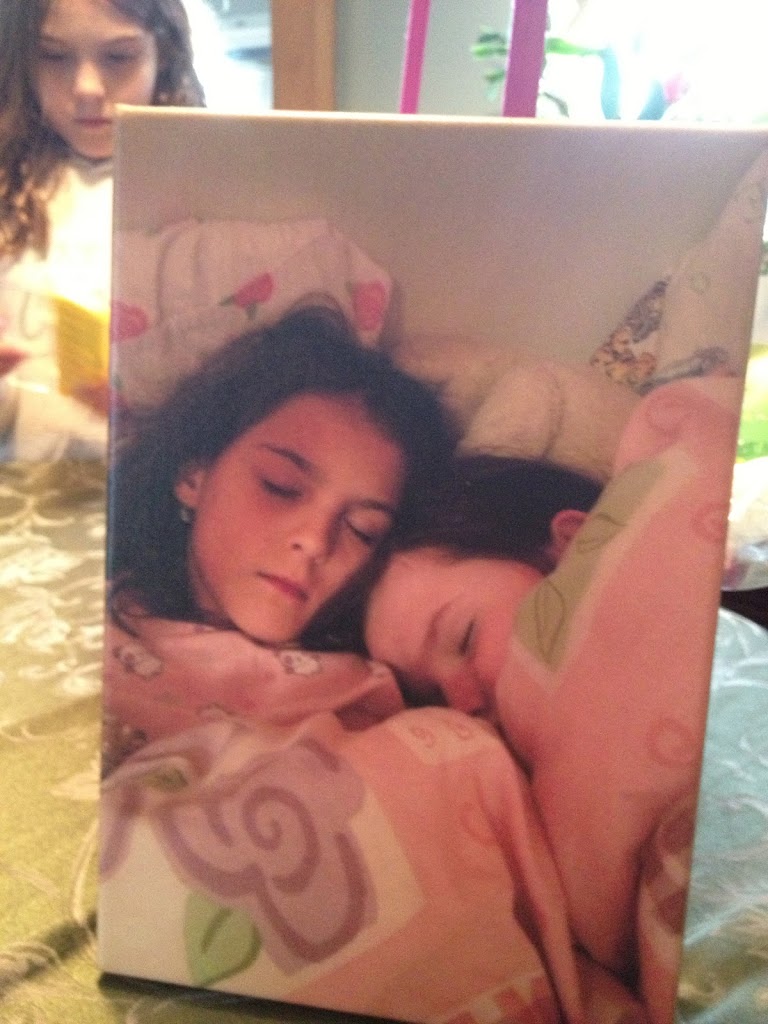
The Memory Clinic and Dementia Care in The Future
 |
| The Yummy Mummy Club’s Erica Ehm and Dr. Tiffany Chow |
A couple of months ago I was invited to The Yummy Mummy Club event for The Memory Clinic. The Memory Clinic by Doctor Tiffany Chow, published by Penguin Books, was of particular interest to me because of the health care journey we have been on with my mother. Chow is one of the esteemed women of Baycrest, a world-renowned retirement home facility in Toronto that specializes in compassionate care for those struggling with dementia. I was thrilled to visit the facility and fairly wowed by the book, as well as the company I was in – many Yummy Mummy Club fans and members and people I know and follow on social media, but had no clue they were also struggling with a loved one diagnosed with Alzheimer’s Disease or dementia.
In light of demographic trends (the silver tsunami which clearly indicates we are nowhere near ready for the coming bubble of seniors and the demands they will place on the health care system in Canada) and the horrific headlines happening in Toronto right now, I wanted to take a minute to re-examine what Chow said during the talk earlier this year. Recently, in Toronto, a senior resident at the Wexford was killed by another resident.
The Memory Clinic is a useful resource for those working in the field, or caring for a relative with dementia or Alzheimer’s Disease, but what really struck me afterwards, during the open discussion, was Chow’s vision for the future of dementia care facilities. For a few moments she painted a picture of what her ideal dementia care facility would look like if she had control over design.
When my brother and I were searching through the endless numbers of retirement homes, longterm care facilities and locked dementia care wards, it was overwhelming. First of all the prices are incredibly outrageous. We toured buildings that ranged from $2,900 per month to over $5,000 each month. There were cottage style dementia wards, and locked clinical institutional facilities, even some entirely clinical oppressive locked units that seemed inhumane. Some had a Montessori approach for seniors. One, that we tried to place our mother in during a period deemed respite, was a total nightmare of inefficient supports that may have triggered an extreme mental health episode, and clearly resulted in her running from the facility. That horrific summer ended at London Health Sciences Centre when police offered to drive my senior citizen mother to ER. That particular facility seemed to focus on Bingos and entertainment activities when they should have been seeking out a higher level of dementia care training for all workers.
In recent days, in Toronto, headline news has centred on a few stories of residents inside nursing homes becoming violent. The Toronto Star also featured the story of an older man currently stuck in hospital and deemed violent, whose care was in conflict because his wife doesn’t want him medicated. Staffers and medical personnel argued he is violent and must be medicated and moved. Every six months or so a similar news item catches people’s interests and hits the court system. I cringe – every time. Why? Because neurobehavioral issues and diseases are far too often misunderstood and mismanaged. Just like ADHD, autism, FASD, and many neurological disorders, diseases, or brain injuries, people with dementia and Alzheimer’s Disease deserve compassionate care and support. Many disorders stemming from neurological reasons are characterized by memory loss and difficulty regulating emotions. There is little to no reason for violence to happen in nursing homes if care is managed properly, a kind calm environment is provided and a proactive, respectful, approach to care maintained. Violence inside our nursing homes and retirement homes in Ontario, rarely occurs in a vacuum.
If our facilities that care for our aging parents were all built properly, if all staffers were trained in compassionate care and behavioural technique that manages outbursts, anticipates needs and acts in a proactive manner, there should not be any more headlines reading Nursing Home Patient Killed by Violent Resident.
Dr. Chow’s ideal dementia care facility would have:
Gardens,
Many nurses,
abundant nursing stations,
a lot of glass,
a sense of community,
sprawling and winding corridors that created a sense of flow and encouraged movement,
multi-media on the walls.
Also important that a facility looks after the interests of the whole family.
Her other tips: selflessness comes from taking care of yourself.
A Montessori approach for seniors is beneficial for many.
Bring something positive into the room.
Don’t get into a fight unless it’s really worth it.
Family events can still be every bit as important to those with dementia and Alz. but you may need to find a way to do them in a smaller way, or do them with Grandma in one room and small numbers of the grandchildren coming in to visit at a time to trim the chaos and noise.
Chow also noted there is still need for locked dementia care facilities. But, as a daughter of someone now accessing this longterm care in Ontario, I can see so many ways we are still failing as a province. All staffers should be trained in basic skills we have had to learn to help manage our mother. De-escalating a patient is not optional and knowing the skills is not optional either.
The Memory Clinic by Tiffany Chow, Penguin Books, Viking imprint, 2013, Toronto, $32.00, 263 pages.
I am giving one copy away also to one Canadian reader. Follow the instructions to win.





18 Comments
Anonymous
This comment has been removed by a blog administrator.
Mariah @ FormulaMom.com
I don’t know a lot about this topic but it seems like something we should all be aware of if we’re handling the care of aging parents.
Amiyrah Martin
We’ve been dealing with dementia with the Husband’s grandmother. Thanks for all the information in this post, and good luck with the giveaway.
Journeys of The Zoo
My grandmother passed away due to complications of Alzheimer’s and I hope to learn something more about the disease.
To this day, I am still scared of some of our interactions.
Great write-up. Thanks for sharing.
Besos, Sarah
Blogger at Journeys of The Zoo
journeysofthezoo at hotmail dot com
Nikki
I did clinicals in a nursing home when I went to nursing school, and I was extremely under-impressed with how they handled dementia patients. I really do think we need a better solution.
Paula Schuck
Nikki: good for you! I absolutely agree. I have seen such a range of health care professionals. Good, excellent and even extremely incompetent and undertrained. It should be a better consistent standard.
Gingermommy
My memory on a good day is often bad. I applaud the caregivers who give the time and have the patience to deal with patients who need extra care. It is scary forgetting so much of ones life.
Jennifer Levac
This sounds like a great book. I work with people with disabilities and the people I care for are aging we have a couple with memory loss. I would love to read this to help me while working with these individuals.
Paula Schuck
Jennifer: good luck and blessings to you. It is a very important job you do.
Mrs. Stephens
This looks like its a great resource for families dealing with this sort of thing.
Country Mouse, City Mouse
Dementia and Alz. is so devastating to families. In fact we were just discussing it at Easter yesterday – a family who is trying to figure things out right now, with dad, who isn’t even 70 yet.
One thing which is good is the Alz. daycare programs which seem to be popping up everywhere. Hopefully, those programs allow patients to stay in their own homes a little longer.
Emily
This is really interested… dementia and Alzheimer’s is so terribly sad. My grandpa had it and he passed away 3 years ago. My grandma (his wife) now has it and is in a nursing home that’s $5K+ a month, it’s crazy. There is a lot for family members to know and learn about caring for someone with dementia… thank you for sharing <3
Everything Mom and Baby
Thank you for sharing your story. It must have been overwhelming to find a good caring facility.
Angie@Echoes of Laughter
There such a important where better and more urgent care is needed. My grandmother suffers from Alzheimers and it so sad to see how she has deteriorated in the last year. She lives alone and will soon be going to a nursing home. Music theraphy is another theraphy that has been shown to be helpful in treating these patients. The right music can calm a patient down almost immediately and I believe that this is another service that should be provided in nursing homes as an very safe & humane treatment option. Great post on a sad subject. Thanks for sharing. Angie xo
Paula Schuck
Angie: yes! Music and art therapy have been proven to help many with neurological disorders.
rj7777
I am not entering and I am not from Canada but I don’t like how the US takes care of the mentally ill in any form. They have allowed them to do what they like and they are on the streets. Everytime I see a shooting with a kid, I think there really wasn’t anywhere to get help for the mentally ill family member unless you have a lot of money and even then it is a challenge. I could write a book on this subject! I really think that not taking care of them in the first place properly with dementia or any disease cost the tax payers so much more in the long run!! It is so hard when it is a family member and it is so important to be her voice. Take care of yourself too!! It is going to take a lot of work to change the system. Rita Spratlen rjspratlen@gmail.com
J
To be prepared should I or any of my friends (or anyone in need, really) need to consider a care facility if home isn’t an option. Though I imagine some of the information in the book could be useful to making the home more suitable for a relative with mental health issues.
Elle Briarson @FashionistaDET
Affects every family. Great post!